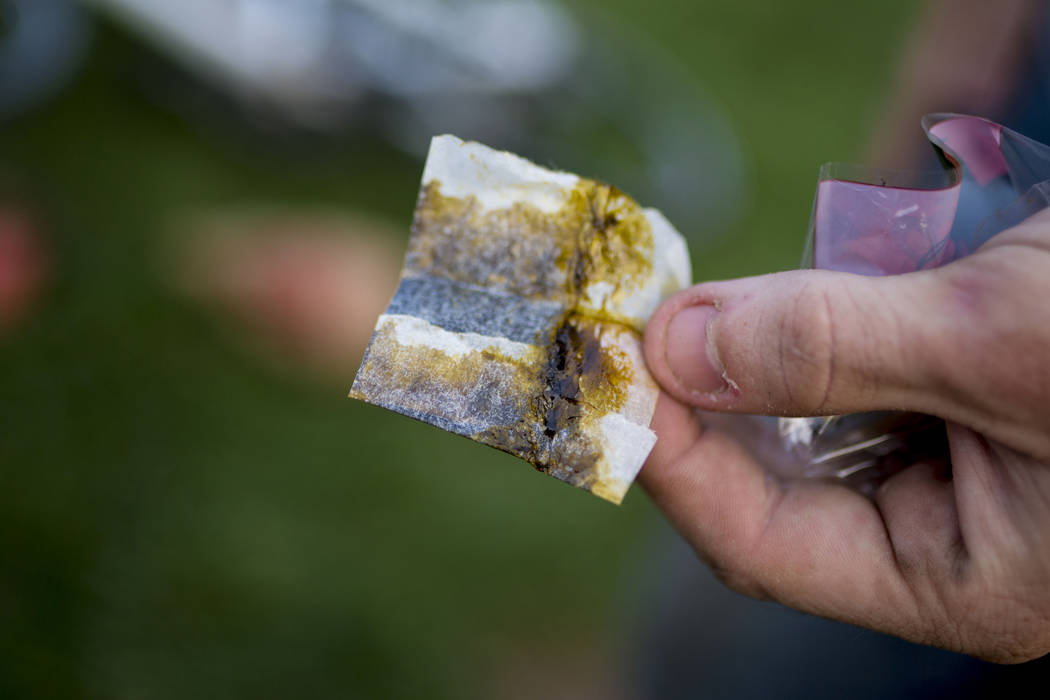Jim Hartman addresses commercial marijuana: Time to ‘Just Say Know’
The “grand experiment” in legalizing recreational commercial marijuana gets a severely negative review from Bob Troyer, the current U.S. attorney in Colorado and an Obama administration “holdover.”
In a Denver Post Op-Ed on Sept. 28, Troyer laid out a devastating critique of Colorado since “first use” of commercialized marijuana commenced in Jan. 2014. Nevadans should heed his warnings, as the Centennial State is 3 ½ years further “down the road” of commercialized pot experience. Nevada’s “first use” began in July 2017.
Troyer’s report is sobering. Colorado’s youth use (12-17-year-olds) is 85 percent higher than the national average. Marijuana-related traffic fatalities are up by 151 percent. Violent crimes increased 19 percent since legalization.
Colorado has a booming black market exploiting the state’s permissive regulatory system—including Mexican cartel growers who use nerve-agent pesticides that are contaminating the state’s soil, waters, and wildlife. Troyer writes that Colorado’s black market has actually exploded after commercialization.
It is now a source state, a theater of operations for sophisticated international drug trafficking and money laundering organizations from Cuba, China and Mexico. In 2017 alone, the regulated industry produced 6.4 metric tons of unaccounted-for marijuana, and over 80,000 black market plants were found on Colorado’s federal lands.
Has marijuana commercialization decreased alcohol use in Colorado? No. The U.S. attorney recites that Colorado alcohol consumption has steadily climbed since marijuana commercialization. How about the industry’s claim that marijuana will cure opioid addiction? A Lancet study found that heavy marijuana users end up with more pain and are more likely to abuse opioids.
In Colorado, Troyer contends that the marijuana industry “targets” underage adolescents. That is why they sell marijuana-consumption products that avoid detection at schools, in a variety of edible marijuana forms and vape pens. These same marketers advertise higher and higher potency marijuana gummy candy as they strive to create and maintain an adolescent user market when their brains are most vulnerable to addiction.
As the U.S. attorney leading other U.S. attorneys on marijuana issues, Troyer tells other states that Colorado tax revenue from commercialized marijuana has resulted in no net gain: marijuana tax revenue adds less than one percent to Colorado’s coffers, which is more than washed out by the public health, public safety and regulatory costs of commercialization.
In Nevada, the “talking point” argument for marijuana commercialization was the promise of tax money for Nevada schools. The full first-year results are now in. The total amount of marijuana tax money transferred to the Nevada statewide Distributive School Account (DSA) was $27.5 million—a relative pittance.
The annual support to schools in the DSA exceeds $2.9 billion. The $27.5 million from marijuana taxes is less than one percent of that funding. In both Colorado and Nevada, the money raised from marijuana taxes earmarked for education is not enough to even “nudge the needle.”
Meanwhile, the nascent commercial marijuana industry in Nevada has concentrated their political campaign contribution muscle behind Clark County Commissioner Steve Sisolak in his race for governor. Sisolak has over a dozen marijuana industry donors contributing the $10,000 maximum, with total industry contributions exceeding $150,000. Sisolak has pledged that, if elected, he wants to legalize on-site consumption of marijuana at dispensaries and create a path for banks to expand marijuana businesses.
The Colorado experience and that in Nevada after one year of commercialization should cause us to pause and “tap the brakes.” Nevadans need to educate themselves about the real impacts of commercialization. It’s time to “just say know.”
Jim Hartman is an attorney residing in Genoa, Nevada. He was president of Nevadans for Responsible Drug Policy (2016).

















